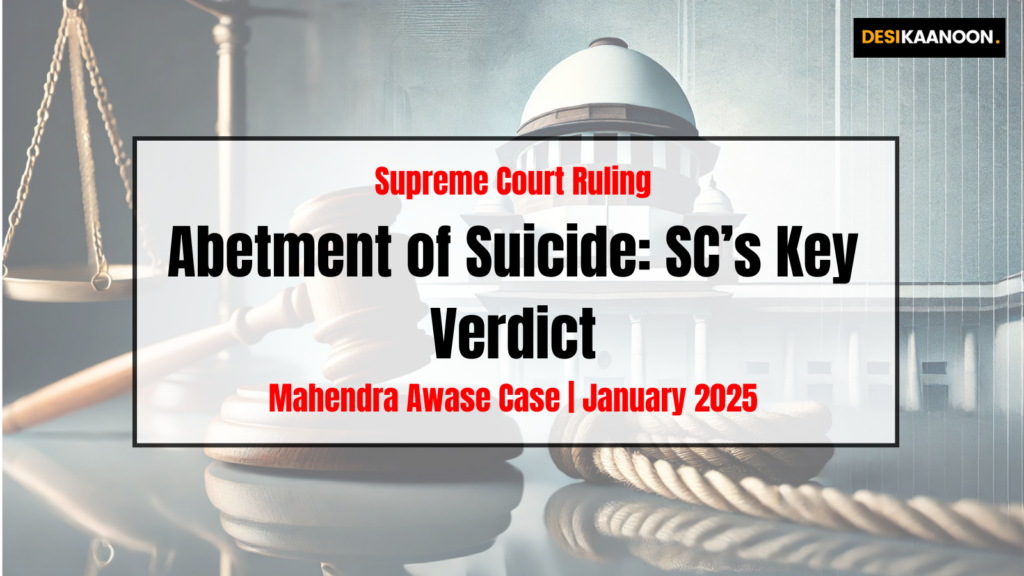Alok Singh
On January 17, 2025, the Supreme Court of India ruled in the case of Mahendra Awase v. State of Madhya Pradesh, addressing the misuse of Section 306 of the Indian Penal Code (IPC), which deals with the abetment of suicide.
The case was heard by a bench comprising of Justices Abhay S. Oka and K.V. Viswanathan wherein they highlighted that to prove abetment, there must be clear evidence of instigation, conspiracy, or intentional support for the act of suicide. Mere harassment or heated exchanges are not enough.
The present case arose after the death of Ranjeet Singh on October 11, 2022. A suicide note accusing Mahendra Awase of harassment over a loan repayment was found. Also, audio recordings were presented as evidence of alleged threats.
The Trial Court framed charges against the appellant under Section 306 IPC, which the High Court upheld. The appellant, afterwards approached the Supreme Court, seeking discharge from the case.
The Court discharged the appellant, stating that his actions did not meet the legal threshold for abetment. It also criticized the frequent misuse of Section 306 IPC and urged investigative agencies and courts to exercise greater care before framing charges.
The bench also referred a case titled M. Mohan vs. State (2011), the Court stressed that the accused must have acted with the intent to drive the victim to take their own life. In the present case, the Court found no such intent. The delay of over two months in filing the FIR also raised doubts about the prosecution’s case.
Case Name: Mahendra Awase v. State of Madhya Pradesh
Case Number: Criminal Appeal No. 221 of 2025 (Special Leave Petition (Crl.) No. 11868 of 2023)
Bench: Justices Abhay S. Oka and K.V. Viswanathan

